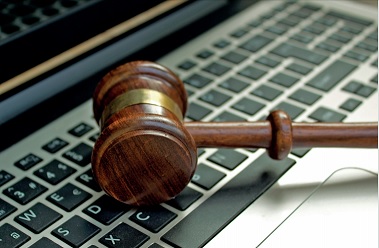David Jordan looks at the current trend for peddling fake news on social media.
 In March 2016 I wrote an article for The Mover entitled ‘Fake news, the weapon that leaves no scars’. It compared the dissemination of fake news using social media with the propaganda campaigns used by all sides during the Second World War.
In March 2016 I wrote an article for The Mover entitled ‘Fake news, the weapon that leaves no scars’. It compared the dissemination of fake news using social media with the propaganda campaigns used by all sides during the Second World War.
Back then, fake news was spread by dropping newspapers carefully crafted in the German language over enemy territory to deceive ordinary people into believing they were doomed and about to be defeated. Meanwhile the Germans used radio broadcasts by traitor William Joyce, aka Lord Haw-Haw, in an attempt to convince the British that their days were numbered. Joyce was hanged by the British for treason in 1946. In those days it seems, spreading fake news was taken rather more seriously than it is today!
Fast-forward to 2019 and the world is awash with fake news. In the UK the seemingly endless saga of the Brexit debate - which has split the country right down the middle - has been fuelled by dubious postings on social media from both sides of the divide, and the ease with which they can be shared makes them a powerful tool in forming public opinion. It also seems that despite their power, there are no rules or restrictions and in Europe and the US at least, no apparent legal remedy, no matter how outrageous or inaccurate the posts may be.
To make things worse, people seem to be only too willing to share anything that happens to match their cause without, it seems, caring whether it’s true or not or who the original author may be. Was it written from the heart by a real person, or by someone with a political agenda trying to stir up trouble or even change the course of an election?
In the mainstream media, re-posting dodgy material is the same as publishing it yourself. The Mover was once threatened with court action for posting a link on our website to a story from a national newspaper which later became the subject of a defamation claim. Fortunately for us the claimant was unsuccessful, otherwise we could have been for the high-jump! Presumably individuals are subject to the same laws, so how come they get away with it?
In my opinion, anyone creating or sharing information they know to be untrue should be guilty of a criminal offence. There are, of course, innocent people who are hoodwinked into sharing posts either by ignorance, feeblemindedness or trickery, and I’m not suggesting this should apply to them. But those who deliberately set out to deceive the public by spreading lies and deception to influence what they do at the ballot-box should be brought to book and punished accordingly.
Some will argue that the newspapers and other mainstream media also influence public opinion, which is of course true - and they are far from perfect. The difference is, professional journalists, unlike the people who write on social media, are accountable for their actions and have to obey the law of the land or suffer the consequences. Any editor deliberately printing bare-faced lies would soon be in court and probably out of a job.
Using the law to combat fake news is not easy. Last April, Malaysia’s then Prime Minister Najib Razak introduced the ‘Anti-Fake News’ bill making it illegal for companies and private citizens to spread fake news on social media. Those convicted faced a fine equivalent to $123,000 and a possible prison sentence of up to six years. The law was scrapped only a few months later following the election of Prime Minister Mahathir Mohamad, who had promised to repeal it if elected.
Whether similar legislation will ever be introduced elsewhere in the world remains to be seen, but it seems unlikely. Critics will say such a move smacks of censorship and is an attempt to silence free speech, while others will see it as a way of hitting back at the menace of fake news and the damage it does to democracy. In the present climate the former view is almost certain to win the argument.
So, it looks as though for now it’s a case of caveat emptor - let the buyer beware - and open season for the fake news peddlers who target gullible people with their lies.
Check the facts before you share on social media.